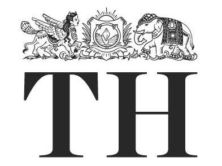The Media Standards Authority would adjudicate any legal claims against a member outlet, Hugh Tomlinson said in his Leveson Inquiry testimony. (Credit: Leveson Inquiry, screenshot, highlight added)
A group called the Media Regulation Roundtable’s proposed “Code of Ethics and Responsibility” and media regulation body were discussed at the UK Leveson Inquiry into press standards and practices, the Belfast Telegraph reported.
Hugh Tomlinson, a lawyer who has represented phone hacking victims and a member of the group, told the inquiry about the code and the group’s suggestion for a “regulatory system which would protect the media’s right to ‘publish information on public interest matters’ and ‘protect the privacy and reputational rights of individuals,'” according to the Telegraph.
Tomlinson noted that the roundtable’s proposed ethics code and work “wasn’t done on behalf of any clients” in his testimony at the Inquiry July 13.
The roundtable called for there to be a “Media Standards Authority,” defined as “a regulator of the media, not just the press, but anybody who publishes news in the United Kingdom.”
Tomlinson noted that the Media Standards Authority would be “voluntary in nature” but with “a number of incentives for membership, and disincentives for those who are not members.”
The Media Standards Authority would be involved in legal complaints against member publication including those related to libel and invasion of privacy by requiring “a process of adjudication”
Tomlinson explained that the roundtable called for the Media Standards Authority to be “wholly independent of Government and politicians.” Tomlinson noted that he sees “an obvious conflict of interest for working editors to be regulating their commercial rivals” in any media self-regulation attempt. However, the group does advise that editors are involved in creating the ethics code.
Concerning the proposed Media Standards Authority’s ability to investigate, Tomlinson said “it seems to me, vital that the MSA must be able to initiate complaints itself.”
Another duty for the Media Standards Authority would be determining the public interest, according to Tomlinson who said when “a publisher may be in doubt as to where the public interest balance lies…the MSA could provide advice.”
See Tomlinson’s discussion with the inquiry about the proposed group and code here.





